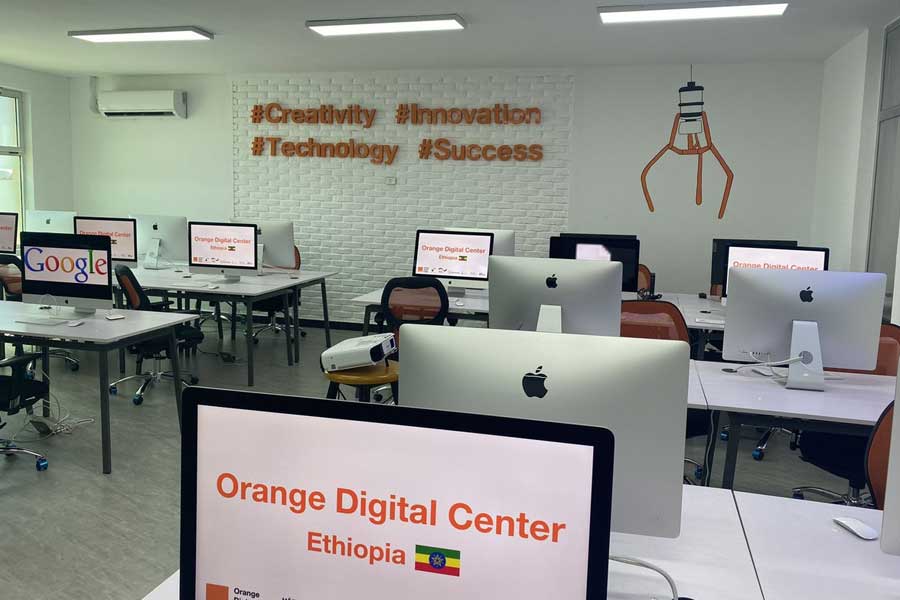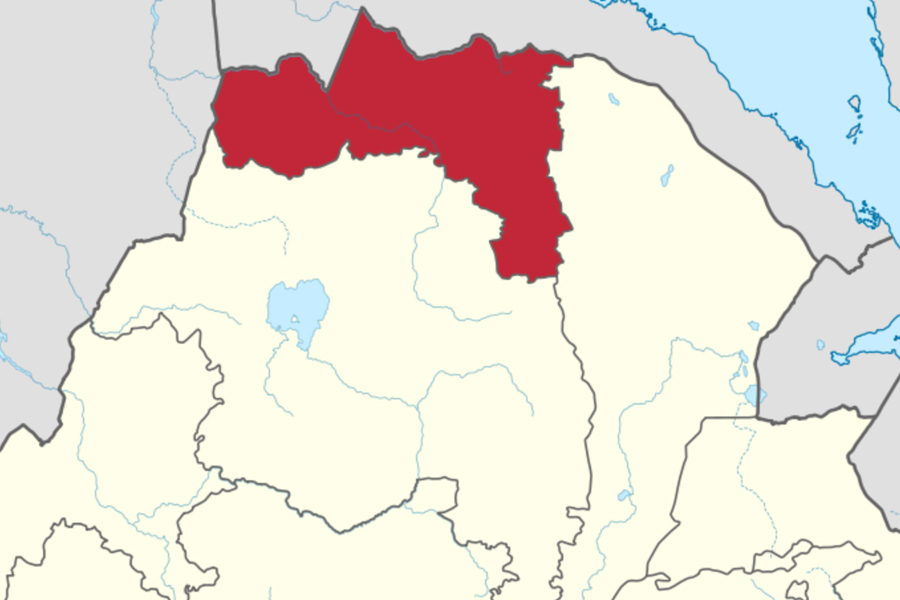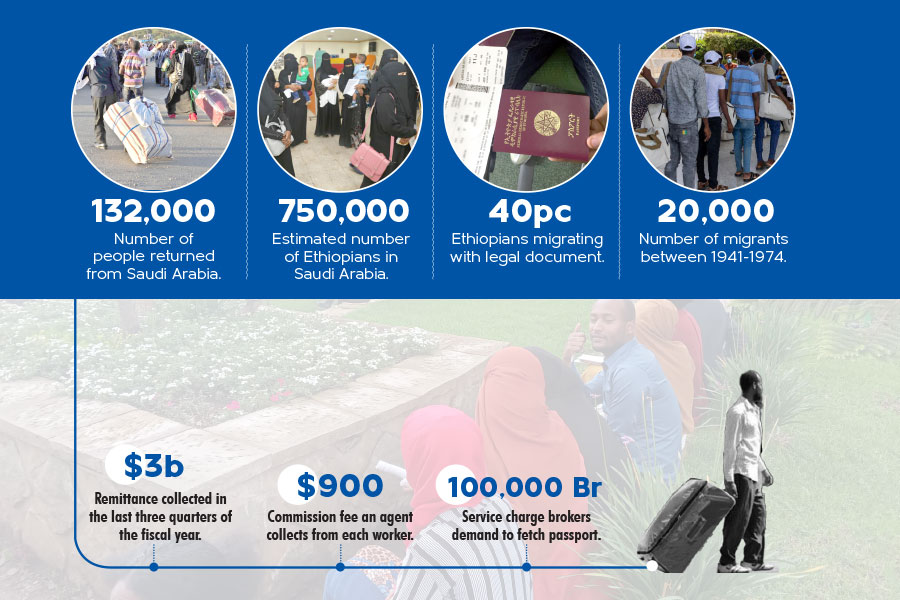
Life Matters | Oct 26,2024
Oct 19 , 2019
By Solomon Ayele Dersso (PhD)
The mood in Ethiopia is caught between the hope and elation of the PM winning the Nobel Peace Prize and the unease and despair of the challenges threatening the transition, writes Solomon Ayele Dersso (PhD), a legal scholar and peace & security analyst. He is the founding director of Amani Africa, an Addis Abeba-based policy research & consulting think tank.
If the mood in Ethiopia was to be represented in a graph after the announcement of the Nobel Peace Prize for 2019, it would reflect one of those uniquely high rising peaks capturing the joy and celebration that erupted in the country.
Yet the transition under Prime Minister Abiy Ahmed (PhD) has for the past year and a half launched Ethiopia both into its spring of hope and winter of despair. As the world bets on Ethiopia’s spring of hope by conferring this award on Abiy, the imperative to address Ethiopia’s winter of despair has become ever more pressing, not least on account of the few months left for the national elections expected in 2020.
The award rightly attracted widespread excitement, patriotic pride and celebration. In a tweet she posted following the announcement, Ethiopia’s first female President Sahle-Work Zewde proclaimed, "Congratulations PM! You Deserve it! Congrats our beloved Ethiopia! Congrats to all Ethiopians at home and abroad." Similarly, Ethiopia’s first chief justice Meaza Ashenafi tweeted "Congratulations to PM Abiy! All Ethiopian men and women who uphold peace shall rejoice by the award of #NobelPeacePrize @AbiyAhmed."
Mustefe Omer, Vice President of the Somali Regional State of Ethiopia, while expressing his extreme delight, said in a statement that "PM Abiy deserves the recognition for bringing peace between Ethiopia and Eritrea, peace process in Sudan and for the …reform agenda in Ethiopia." These are the sentiments that many within and outside the country expressed.
The Ethiopia-Eritrea rapprochement, despite all the challenges facing it, was a remarkable breakthrough. It ended nearly two decades of tension and rivalry that destabilised the entire region. This feat could not have been achieved had it not been for Abiy Ahmed’s conviction and determination to end the stalemate that brought enormous socioeconomic, political and security cost to the peoples of the two countries and the region. As the press release from the Nobel Committee suggests, it is this and the peace efforts in the Horn of Africa region more than anything else that earned Abiy the prize.
Yet this prize is also of huge significance for the Prime Minister’s role at home. The Nobel Prize has injected a much-needed boost to what I consider to be the spring of hope in Ethiopia’s transition. At a time when the winter of despair continues to dominate the skies of Ethiopia with a cloud of uncertainty, polarisation and tension, the award brought out the sense of patriotic unity, hope and elation characteristic of the early months following Abiy’s ascent to power.
As Ethiopians rejoice by this prestigious recognition, the various challenges facing the Prime Minister and threatening Ethiopia’s transition did not escape many. Even the Nobel Committee in its statement admitted that "many challenges remain unresolved. Ethnic strife continues to escalate, and we have seen troubling examples of this in recent weeks and months." As the Committee was announcing Abiy as the winner of the prize, news of road closure on the main road connecting the Amhara Regional State with the capital city was also making the rounds.
Jawar Mohammed, an influential political activist and executive director of Oromo Media Network, told CNN that "Prime Minister Abiy has done a wonderful job in bringing peace with and within the neighbouring countries." He added that the Prime Minister "has to do a lot more to bring peace and stability domestically and to ensure the transition to democracy succeeds."
On this score, many share Jawar’s remarks. There is widespread recognition that it is what happens on the home front that is sure to determine whether Abiy will stand or fall. As great as the hopes and positive changes of Ethiopia are, the country also faces as much, if not stronger, challenges. The challenge for the Prime Minister is to avoid allowing Ethiopia’s winter of despair to lead him to face the unenviable fall from grace befallen Myanmar’s leader Aung San Suu Kyi, another Nobel Peace laureate.
It is on this account that the resolution of the major sources of the crisis facing Ethiopia’s transition becomes the major prize that is awaiting Abiy. Most notably, the country has come to experience worrying levels of ethnic-based contestations in various parts of the country that have resulted in incidents of violence leading to the loss of lives and displacement of some three million Ethiopians.
Although it is not uncommon to attribute the current challenges to the widening of the political space in Ethiopia, that democratisation is not the source of the problem cannot be overemphasised. The main challenge of the country lies in the lack of the emergence of a new settlement replacing the post-1991 political settlement that collapsed with the emergence of Abiy as the new leader of Ethiopia. The crises the transition has encountered are a result mainly of the fact that the democratisation process is not founded on a national settlement.
While at the ideological level the main axis of contestation is between the forces of Ethiopian nationalism and those of ethnicity-based nationalisms, in the political realm there are two major sites of the crisis of the transition.
The first is the ruling Ethiopian People’s Revolutionary Democratic Front (EPRDF). The EPRDF is not like any other ruling party. It is inseparably infused into the structures of the Ethiopian state at the federal level and with each of the four ethnic member parties of the EPRDF controlling the structures of the major self-governing regional members of the Ethiopian federation. The infighting between these four ethnic parties tends to descend into confrontation between the regional governments automatically. As a recent report noted, "tensions between states, especially the three most powerful – Oromia, Amhara and Tigray – worsened as relations in the EPRDF soured."
An upsurge of hate-mongering ethno-nationalisms and contestations at the regional and local levels between the new forces unleashed into the political system, and the member of the EPRDF controlling the region or minorities residing in the regions, have become the second major site of crises facing this transition. This is the site of the crisis with which much of the ethnic clashes and the accompanying displacements are associated. A case in point is the conflict in Gedeo that forced over a million people from their homes. Other examples include the conflict relating to Qimant in Amhara region or more recently the conflict involving the Sidama in Southern Ethiopia or the sporadic clashes in western Oromia.
These major sources of Ethiopia’s winter of despair require Prime Minister Abiy to pursue his vision of reconciliation with the same level of conviction, tact and tenacity as in the areas associated with Ethiopia’s spring of hope. At the level of the EPRDF, observers rightly point out that there is a need for initiating a process of rapprochement and reconciliation that leads to the re-organisation of the EPRDF to achieve a new political vision and framework for working together. As an editorial of this newspaper pointed out, "such bargaining is not easy. It demands not only ‘humility to at least listen to other views’ but also ‘to make painful concessions.’"
There is also a need for arranging a dialogue and political negotiation with the various political forces outside of the EPRDF fold, including those that have emerged into the political arena after the opening of the political space by Abiy. Such negotiation is needed to achieve a political settlement and an agreed road map both at the national and regional level. The settlement and accompanying road map would ensure that these political forces operate within an agreed parameter and have a framework for dialogue and dispute resolution. This is key to averting the tendency of using violence to pursue a political agenda that is becoming recurrent. In all of these, the Prime Minister should prioritize the views of Ethiopians including those not part of his support base.
If Abiy uses the boost that the Nobel Prize brought for the spring of hope in the transition to catalyze and deliver on these negotiations within EPRDF and among the wider political forces of the country and does so before the national elections expected to take place in 2020, it would remove the winter of despair in Ethiopia’s transition and put his role beyond reproach. We are all invested in the success in this front. The future of Ethiopia depends on it.
PUBLISHED ON
Oct 19,2019 [ VOL
20 , NO
1016]


Life Matters | Oct 26,2024

Sunday with Eden | Oct 10,2020

My Opinion | Jan 27,2024

Films Review | Apr 20,2019

Commentaries | Jul 17,2022

Fineline | Jun 22,2019

Fortune News | Feb 27,2021

Fortune News | Nov 21,2020

Editorial | Oct 28,2023

Fortune News | Jul 29,2023

Photo Gallery | 178691 Views | May 06,2019

Photo Gallery | 168886 Views | Apr 26,2019

Photo Gallery | 159722 Views | Oct 06,2021

My Opinion | 137104 Views | Aug 14,2021
Commentaries | Oct 25,2025

Dec 22 , 2024 . By TIZITA SHEWAFERAW
Charged with transforming colossal state-owned enterprises into modern and competitiv...

Aug 18 , 2024 . By AKSAH ITALO
Although predictable Yonas Zerihun's job in the ride-hailing service is not immune to...

Jul 28 , 2024 . By TIZITA SHEWAFERAW
Unhabitual, perhaps too many, Samuel Gebreyohannes, 38, used to occasionally enjoy a couple of beers at breakfast. However, he recently swit...

Jul 13 , 2024 . By AKSAH ITALO
Investors who rely on tractors, trucks, and field vehicles for commuting, transporting commodities, and f...

Oct 25 , 2025
The regulatory machinery is on overdrive. In only two years, no fewer than 35 new pro...

Oct 18 , 2025
The political establishment, notably the ruling party and its top brass, has become p...

Oct 11 , 2025
Ladislas Farago, a roving Associated Press (AP) correspondent, arrived in Ethiopia in...

Oct 4 , 2025
Eyob Tekalegn (PhD) had been in the Governor's chair for only weeks when, on Septembe...

Oct 25 , 2025 . By YITBAREK GETACHEW
Officials of the Addis Abeba's Education Bureau have embarked on an ambitious experim...

Oct 26 , 2025 . By YITBAREK GETACHEW
The federal government is making a landmark shift in its investment incentive regime...

Oct 29 , 2025 . By NAHOM AYELE
The National Bank of Ethiopia (NBE) is preparing to issue a directive that will funda...

Oct 26 , 2025 . By SURAFEL MULUGETA
A community of booksellers shadowing the Ethiopian National Theatre has been jolted b...